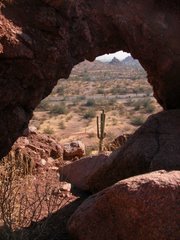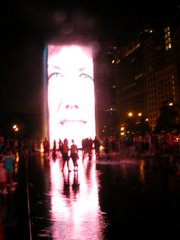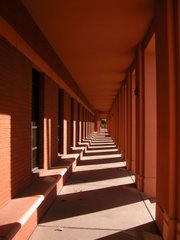A happy coincidence of scheduling found Callista and me in Italy on Columbus Day weekend, the birthplace nation of Christopher Columbus. He was from Genoa, and we were in Venice -- but as we discovered, Columbus' Italy is filled with a history that Americans value.
Perhaps no one was more aptly named than Columbus. Christopher (literally "Christ Bearer") is the name taken from the saint who is to millions of Catholics the patron saint of travelers. And a traveler he was. Centuries before the sexton and other navigation tool, Columbus ventured to find for Spain a westward and competing route to spice-rich India. A great navigator, he was not. He ended up finding the Western Hemisphere instead.
So maybe he wasn't a great navigator, but he was an extraordinary mariner
and certainly one of the most important explorers. Up until recently, Columbus
had enjoyed a prominent place in American history. But because of the left's
ongoing historical revisionism of Western civilization, Columbus has become a
fashionable target of ridicule. The elites like to paint Columbus as nothing
more than someone who spread disease, inflicted genocide and destroyed the
native civilizations of the New World.
he continues...
What first struck me as Callista and I toured Venice and listened to our remarkably informed guide, Alessandro Giannatasio, was the comparative depth and richness of the Republic of Venice and the lessons it offered for America.
Venice is an ancient city whose very architecture testifies to its history. Keep in mind that the average house in Venice is more than 500 years old -- not the oldest house, the average house.Which means most of Venice's homes were built during the 1,100 years that Venice was a republic -- from around 697 until another Italian descendent (later a French general turned emperor), Napoléon Bonaparte, a Corsican (Corsica was then part of the Republic of Genoa), ended it in 1797.
Venice is famous for its art and beauty, of course. But few take the time to understand what made this possible.
Here was a city-state dedicated to creating jobs and prosperity and, as a
consequence, seeking enough military power to protect its wealth. It acquired
military power through technological and organizational superiority in a manner
every American should be able to identify with. Then, having become one of the
three or four wealthiest cities in the world (by 1450 there were 250,000 people
in Venice itself and, at its peak, 3.5 million people in the Republic of Venice), Venetians began to invest their wealth in art and music and great churches
however Venice's glory is in its past as Newt further explains...
As we toured, there are also some sobering lessons in Venice's decline. It was the deforestation of Venetian territories in the Dolomite Mountains and along the Dalmatian coast that eventually made it very difficult to get enough timber to continue building the ships in the Venetian navy.He concludes with this lesson...
And it was the absence of a sound public health system that led to the
terrible plagues of 1575 and 1630, which reduced the city to 140,000 people.
One sign of Venice's longevity is found in two of its most famous private companies. Their diversity is a good reminder of the complexity of high civilizations.
The Segusi family has been making world famous Murano glass for more than 600 years. As family businesses go, that is a record to which to aspire.
The other great historic business in Venice is Beretta, which has been making guns since 1525.
It is a fascinating reality that goes against left-wing sentimentality. Beretta helped make it possible to protect the glassmakers of Murano, and businesses creating wealth made it possible to sustain the art and artists for which Venice is known.
This is a useful dynamic to keep in mind as we go through the next few years' debates
...
Remember also that the glory of Venice grew out of the marshes. The city-state was based on a series of islands connected by boats. At its peak, Venice had 11,000 gondoliers moving people among the islands.
As we see the politically imposed poverty of Gaza, Zimbabwe, Cuba and now Venezuela, we need to remember that the human spirit is far more important than natural resources or geography in making people productive and prosperous.
There was no geographic or natural resource advantage that helped Venice to become one of the three or four wealthiest cities in the world during the Middle Ages.
The rise of Venice was a function of human creativity, drive and entrepreneurship within a legal and political framework that encouraged the acquisition of wealth and honored the process of productivity and economic growth.
If the poorest societies and countries in the world studied the lessons of 1,000 years of Venetian productivity and commerce, they would learn a lot more than they will learn from those touting big-government, big-bureaucracy theories that have never created wealth.














No comments:
Post a Comment